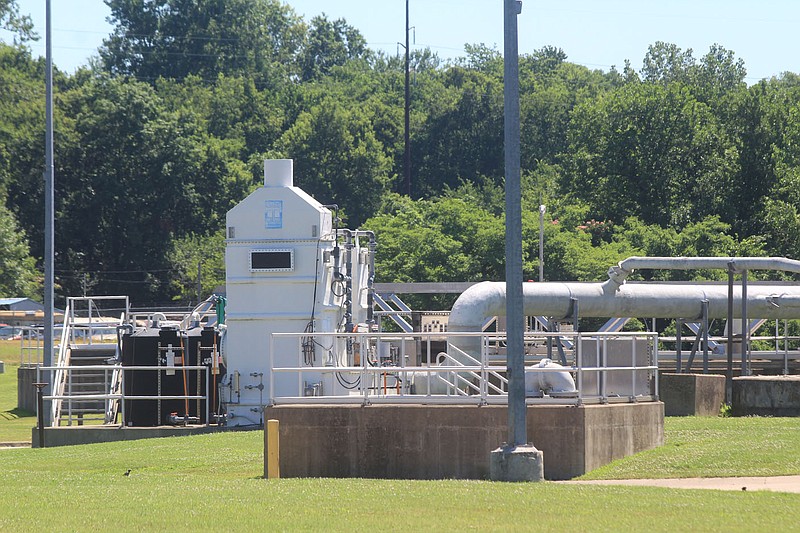FORT SMITH -- Environmental counsel says the city will need to raise its sewer rates to appease federal officials enforcing its consent decree but is looking at ways to keep the increase as low as possible.
Attorney Paul Calamita, who is advising the city in consent decree negotiation, said at a city meeting Tuesday he looks to argue the requirements of the Clean Water Act, request extensions for disasters and show compliance with the city's consent decree in negotiation over the requirements to remediate decades of sewage runoff in the city.
Calamita hopes the efforts will minimize any additional increases to the city's sewer rate, which he said would be in order to show federal judge P.K. Holmes the city is making an effort toward following Holmes' decision an 11% increase per year wouldn't be enough to give the city relief.
Since 2015, Fort Smith's sewer rate has increased 167% to pay for wastewater system improvement mandated by the Department of Justice and Environmental Protection Agency.
"The 'how much' hasn't been decided," said Calamita, who believes an increase is in order to show good faith to Holmes. At the meeting, At-Large Director Kevin Settle said Holmes is overreaching by telling the city how to increase its rates.
His statement follows Utility Director Lance McAvoy saying the total capital cost of the decree is "well over $600 million" to address decades of sanitary sewer overflows. It was estimated to cost a total of $480 million when it was lodged.
City Administrator Carl Geffken and Deputy City Administrator Jeff Dingman in April estimated the city spent around $300 million on the decree.
The city in 2015 agreed in the decree signed with the U.S. Environmental Protection Agency, the Department of Justice and the state to spend the estimated revenue 12 years on repairs and upgrades to its wastewater system. The repairs are in response to sewage runoff constituting chronic violations of the federal Clean Water Act.
The city raised its rates to help fulfill the requirements of the decree, which include sewer assessments, capacity projects and pump station improvements. It currently has five and a half years to comply with the decree, which will be extended five years if it is honored by the feds.
"I want my neighbors to be proud to live here, but this is not practical for them," McAvoy said.
Calamita said pipe defects at risk of failure can be used as an argument for the city because the city builds storage for them. He said this option falls under the decree's capacity, management, operations and maintenance program. He also said the Clean Water Act states cities should prioritize consent decrees, even when under a consent decree.
Additionally, Calamita said the city could potentially find other sources of revenue through the federal infrastructure bill, state grants and state loans. He also believes the city is eligible for two three-year extensions -- one for covid-19; the other for the Arkansas River flood of May and June 2019.
Despite the rate increases, Calamita said progress has been made.
"What we're struggling with now is to try to redirect some of the requirements of the consent decree away from defects in the manholes and the sewer lines that don't matter so that you can be able to have the resources to focus the dollars and the manpower on things like grease blockage, roots and maintenance-related overflows," Calamita said.
"We're doing the best we can for the citizens of the River Valley, and I think it's going to be done," Mayor George McGill said to close the meeting.
